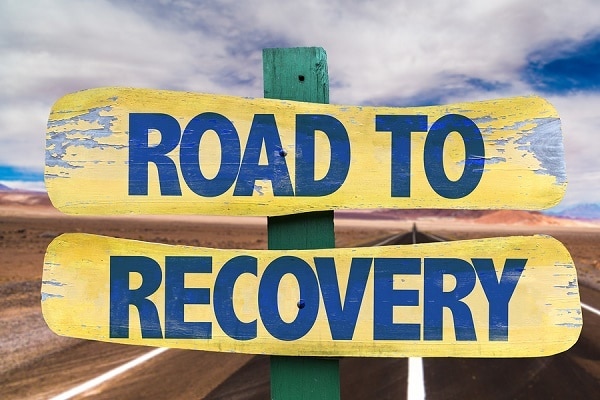
There are steps you can take to avoid the physical and emotional pain of relapse.
If addiction recovery is a road that leads to wellness, then relapse is an exit that can steer you off course and land you back where you started. When you are suffering from addiction to alcohol or drugs, relapse is an ever-present possibility.
What can you do to stay on the road to recovery and avoid the relapse exits that will lead you back to a life of enslavement to addiction?
Relapse Prevention Therapy Paves the Way to Addiction Recovery
As part of a comprehensive treatment strategy, relapse prevention therapy can provide relief for those struggling with maintaining sobriety. According to the National Institute on Drug Abuse, relapse prevention therapy is based on cognitive-behavioral principles and seeks to address the problem of relapse through the development of self-control strategies.
“Evidence-Based Practices for Substance Use Disorders” says of relapse prevention therapy: “RPT encompasses several cognitive-behavioral strategies that facilitate abstinence as well as provide help for people who experience relapse.”
Understanding the Process of Relapse
In order to avoid relapse during substance abuse recovery, it is important to first acknowledge that some lapses will likely occur at intervals during the recovery process. Lapses are quite common among recovering substance abusers.
Understanding the relapse process can do much to help you avoid it. By being alert to early warning signs, you can stay on the road to recovery and not veer off onto an exit that leads to relapse.
While it may be common to think of a relapse as a sudden, large event, in truth there is usually a series of events that can indicate one’s recovery is in jeopardy. “The National Psychologist” notes that 75 percent of lapses occur in one of three common high-risk scenarios: negative emotional states, interpersonal conflict, and social pressure.
For instance, a recovering alcoholic may experience a lapse when high stress levels at work foster a negative emotional state. A recovering drug addict may relapse after a relationship ends. A former substance abuser may experience a relapse when socializing with friends who still engage in substance abuse. Learning to identify and prepare for potential high-risk situations can help you avoid relapse in those situations so that you can maintain your sobriety even under duress.
How Relapse Prevention Therapy Works
Relapse prevention therapy helps you to identify and manage relapse warning signs early. Terence T. Gorski, an internationally recognized expert on relapse prevention therapy, outlines a multi-step process for relapse prevention planning:
• Stabilization: Relapse prevention cannot begin in earnest until a person is first sober and non-toxic. A clear head is needed to begin the planning process.
• Assessment: During the assessment period, the recovering addict explores the recurrent pattern of problems that can lead to a relapse, which includes examining the person’s life, drug/alcohol abuse, and relapse histories in order to discern patterns of behavior.
• Relapse Education: This portion of the therapy focuses on acknowledging the following four basic concepts:
(1) Relapses are a normal part of recovery.
(2) There are warning signs before relapse occurs.
(3) There are steps that can be taken to manage the warning signs before relapse occurs.
(4) There is hope before, during, and after a relapse.

Talking about relapse prevention and recovery is a great first step toward a better future.
Once those steps are taken, relapse prevention therapy involves learning healthy coping strategies to deal with high-risk situations and recognizing the warning signs of relapse. One such strategy is inventory training, in which the former substance abuser learns to prepare each morning to be able to handle any high-risk situations that may arise and review every night the progress that the person has made in managing the warning signs of relapse. This continual process of checking in with yourself to explore your progress is both essential for sustained success and encouraging on a daily basis.
Family members and friends can be included in relapse prevention planning for additional support. As a bonus, attending relapse prevention therapy can help loved ones to address codependency issues. When everyone shares in the recovery process and supports one another, the chance of relapse decreases.
We Stand By Ready to Help
When you are ready to receive the support you need to avoid relapse and stay on the road to recovery toward permanent wellness, please contact us.







